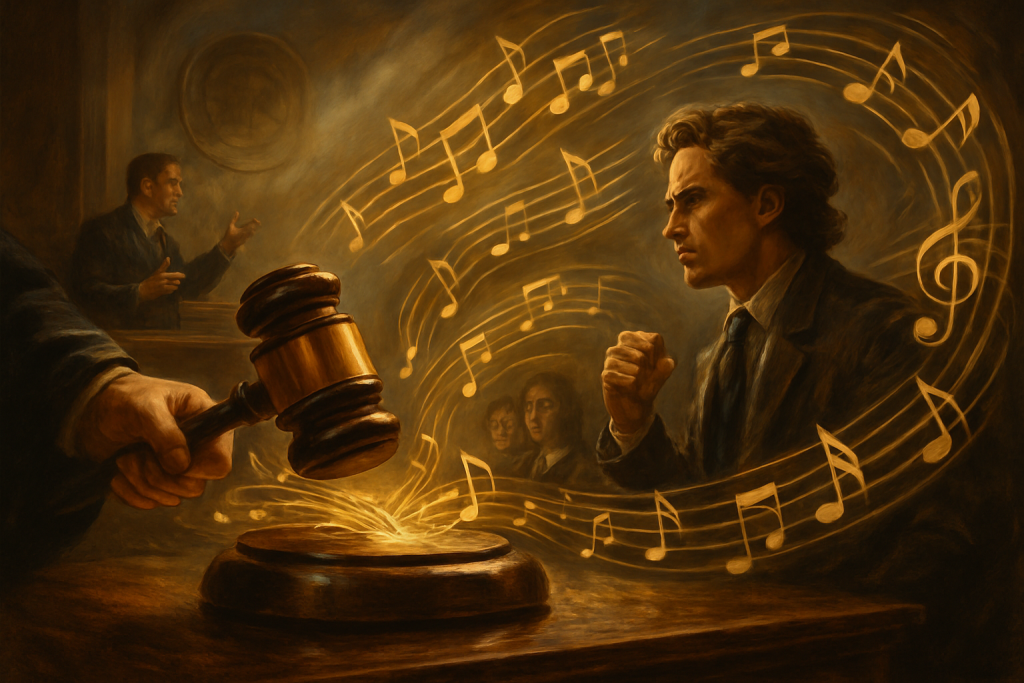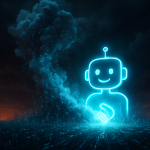The year is 2025. AI is woven into the fabric of our lives, from composing personalized playlists that know our moods better than we do, to diagnosing diseases with an accuracy that rivals seasoned doctors. But with this technological leap, a familiar battle rages on: the fight for creators’ rights in an age of artificial intelligence. And this time, it’s taken center stage with a dramatic crescendo led by none other than Sir Elton John.
The Rocket Man himself has blasted off on a mission to protect artists, launching a scathing critique of the UK government’s proposed changes to copyright law. These changes, spearheaded by Prime Minister Keir Starmer’s administration, aim to loosen regulations, allowing AI developers to train their models on copyrighted material without compensating the original creators unless they explicitly opt-out. Think of it as an open buffet for AI, where anything accessible is fair game. And Elton John is not having it.
To understand the gravity of this situation, rewind a bit. The rise of generative AI, think DALL-E 3 creating stunning images from text prompts or advanced music composition AIs spitting out original scores, relies heavily on vast datasets of existing content. These datasets are the raw fuel for AI’s learning process. The more data, the ‘better’ the AI’s output. But where does this data come from? Often, it’s scraped from the internet, a vast ocean of creative works- songs, books, paintings, code- all protected by copyright.
The legal grey area surrounding this data usage has been a simmering pot of contention for years. Are AI developers simply ‘learning’ from existing works, like a student studying the masters? Or are they creating derivative works that infringe on the original copyrights? The debate is complex, fraught with legal nuances, and has huge implications for the future of creative industries. It’s a real ‘Blurred Lines’ situation, to borrow a phrase from a past copyright debacle.
Elton John isn’t alone in his outrage. He’s joined by a chorus of fellow musical titans, including Sir Paul McCartney, Andrew Lloyd Webber, and Ed Sheeran. These aren’t just any artists; they’re legends who have shaped the soundscape of generations. Their collective voice carries significant weight, sending a clear message: creative rights matter, even in the age of AI.
The core of their argument is simple yet powerful: these proposed changes disproportionately harm emerging artists. Established names like Elton John have the resources to fight legal battles and protect their work. But what about the up-and-coming musician struggling to make a name for themselves? Or the independent animator pouring their heart and soul into a short film? They lack the legal firepower to combat massive tech corporations that could potentially use their work without proper attribution or compensation. It’s a David versus Goliath scenario, but with algorithms and server farms instead of slingshots.
Elton John didn’t mince words, calling the proposal “criminal.” He articulated the deep-seated fear that AI, for all its technological prowess, can never replicate the emotional depth and human connection that lies at the heart of art. A machine can generate a technically perfect song, but can it capture the raw emotion of heartbreak? Can it convey the joy of first love? Can it tell a story that resonates with the human soul? That’s the question that hangs heavy in the air.
The UK government, for its part, insists it’s merely exploring options and engaging in consultations. They claim they won’t proceed with any changes that don’t benefit both the AI industry and the creative sector. They highlight the UK’s rich history of artistic excellence, a sector that employs countless individuals and contributes significantly to the nation’s economy. It’s a delicate balancing act- fostering innovation while protecting creative livelihoods. But can that balance truly be achieved?
The Technical Tightrope Walk
Let’s dive a little deeper into the technical aspects. The proposed “opt-out” system is a key point of contention. In essence, it shifts the burden of responsibility from the AI developers to the creators. Instead of developers seeking permission to use copyrighted material, creators must actively identify their work and explicitly prohibit its use for AI training. This might sound simple enough, but in practice, it’s a logistical nightmare. Imagine millions of artists, each needing to track their work across the vast expanse of the internet and then navigate a complex opt-out process. It’s like trying to catch grains of sand on a windy beach.
Furthermore, the very definition of “lawful access” is open to interpretation. Does it include content hosted on platforms with ambiguous terms of service? What about content that’s been illegally uploaded? The ambiguity could create loopholes that allow AI developers to exploit copyrighted material with impunity. It’s a legal minefield waiting to explode.
The Societal Score
Beyond the legal and technical complexities, there are broader societal implications to consider. If AI developers are allowed to freely use copyrighted material without compensation, what message does that send about the value of creative work? Does it devalue art, reducing it to mere data points in an algorithm? Does it stifle innovation by discouraging artists from creating new work if they fear their creations will be exploited? These are not just economic questions; they’re fundamental questions about the role of art in our society.
This debate also touches on the growing anxieties surrounding AI’s impact on the job market. As AI becomes more capable of performing tasks that were previously done by humans, many fear that creative professions will be among the first to be automated. The proposed copyright changes could exacerbate this fear, creating a sense of unease and uncertainty within the creative community. It’s a real-world manifestation of the Skynet fears we’ve seen in movies, though instead of robots rising up, it’s algorithms potentially taking over artistic expression.
The Financial Fallout
The financial implications of these changes are significant. For large tech companies, the ability to train AI models on copyrighted material without compensation could translate into massive cost savings. This could further consolidate their dominance in the AI market, creating an uneven playing field for smaller startups and independent developers. Conversely, for the creative industries, the loss of potential licensing revenue could be devastating, particularly for emerging artists who rely on royalties to make a living. It’s a high-stakes game with billions of dollars on the line.
The stock prices of companies heavily invested in AI development are likely to react to any major developments in this area. A favorable ruling for AI developers could boost their stock prices, while a victory for copyright holders could have the opposite effect. The markets are watching closely, as this debate could set a precedent for how AI development is regulated globally.
Ethical Echoes
Ultimately, this debate raises profound ethical questions about the nature of creativity, ownership, and the future of art in an AI-driven world. Do we value creativity as a uniquely human endeavor, or do we see it as a commodity that can be freely exploited by machines? Do we believe that artists deserve to be compensated for their work, or do we accept that their creations can be used without their consent? These are not easy questions, and there are no easy answers. But they are questions that we must grapple with as we navigate the uncharted waters of the AI revolution.
As Elton John himself might say, “I’m still standing,” and so are the artists who are fighting for their rights in this digital age. Whether their voices will be heard remains to be seen. But one thing is certain: this is a battle that will shape the future of creativity for generations to come. And Just Buzz will be here to cover every note.
Discover more from Just Buzz
Subscribe to get the latest posts sent to your email.


